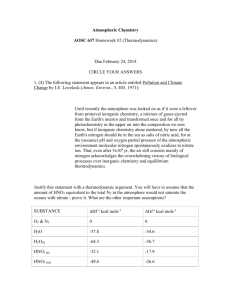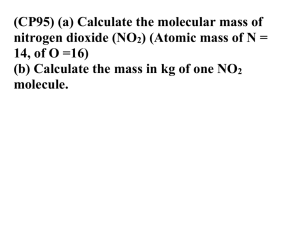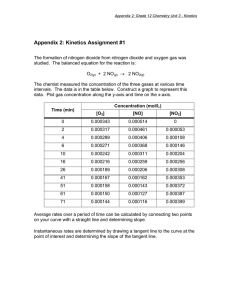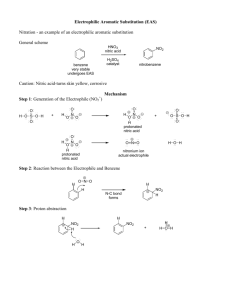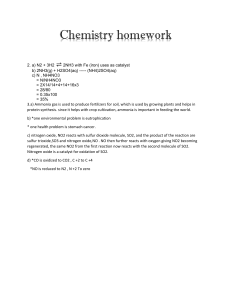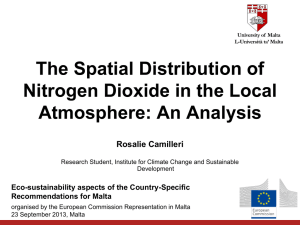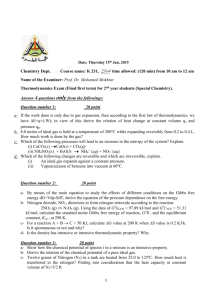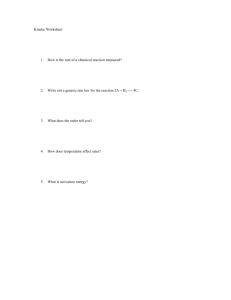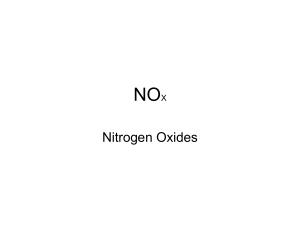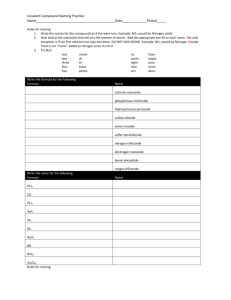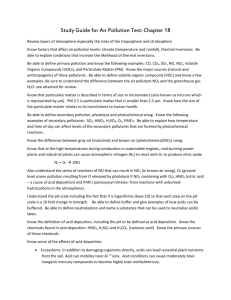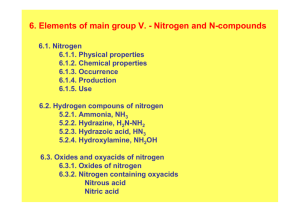Atmospheric and oceanic chemical thermodynamics.
advertisement
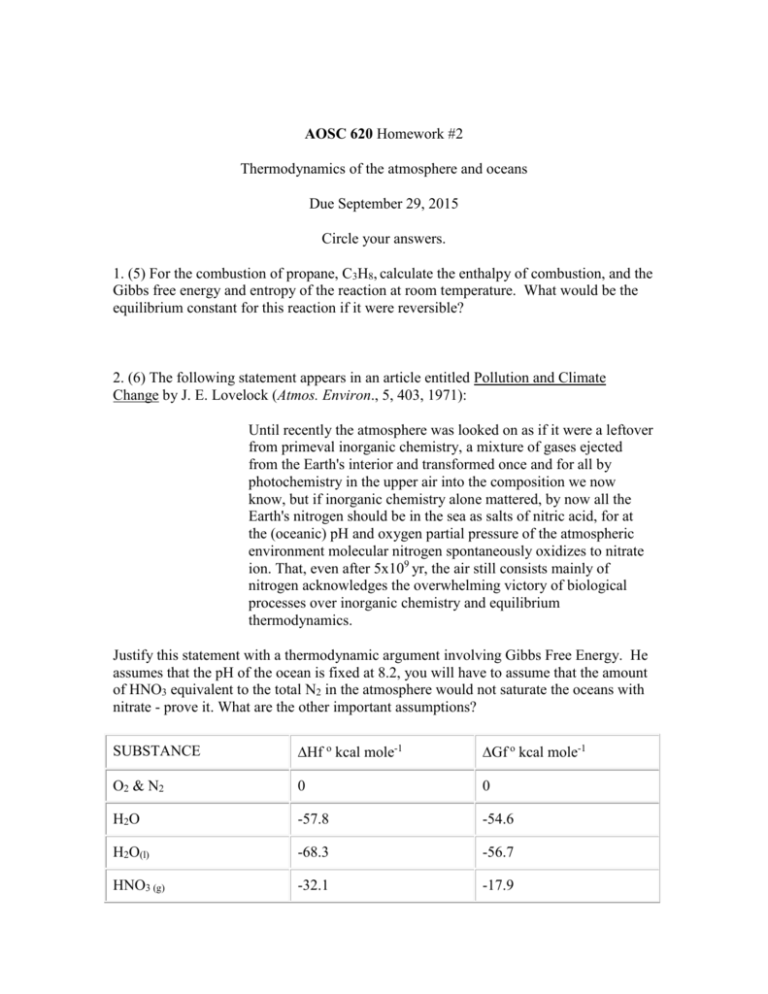
AOSC 620 Homework #2 Thermodynamics of the atmosphere and oceans Due September 29, 2015 Circle your answers. 1. (5) For the combustion of propane, C3H8, calculate the enthalpy of combustion, and the Gibbs free energy and entropy of the reaction at room temperature. What would be the equilibrium constant for this reaction if it were reversible? 2. (6) The following statement appears in an article entitled Pollution and Climate Change by J. E. Lovelock (Atmos. Environ., 5, 403, 1971): Until recently the atmosphere was looked on as if it were a leftover from primeval inorganic chemistry, a mixture of gases ejected from the Earth's interior and transformed once and for all by photochemistry in the upper air into the composition we now know, but if inorganic chemistry alone mattered, by now all the Earth's nitrogen should be in the sea as salts of nitric acid, for at the (oceanic) pH and oxygen partial pressure of the atmospheric environment molecular nitrogen spontaneously oxidizes to nitrate ion. That, even after 5x109 yr, the air still consists mainly of nitrogen acknowledges the overwhelming victory of biological processes over inorganic chemistry and equilibrium thermodynamics. Justify this statement with a thermodynamic argument involving Gibbs Free Energy. He assumes that the pH of the ocean is fixed at 8.2, you will have to assume that the amount of HNO3 equivalent to the total N2 in the atmosphere would not saturate the oceans with nitrate - prove it. What are the other important assumptions? SUBSTANCE Hf o kcal mole-1 Gf o kcal mole-1 O2 & N2 0 0 H2O -57.8 -54.6 H2O(l) -68.3 -56.7 HNO3 (g) -32.1 -17.9 HNO3 (aq) -49.6 -26.6 NO2 8.1 12.4 NO 21.6 20.7 H +(aq) 0 0 OH -(aq) -55.0 -37.6 3. (4) Compute the N-O bond dissociation energy for nitric oxide, NO, and nitrogen dioxide, NO2, (the first bond only). Calculate the maximum wavelength of light that can photolyze NO2, in other words can initiate the following reaction: NO2 + h NO + O For extra credit repeat for NO3, and explain what that tells us about the importance of NO3 during the daylight hours.
